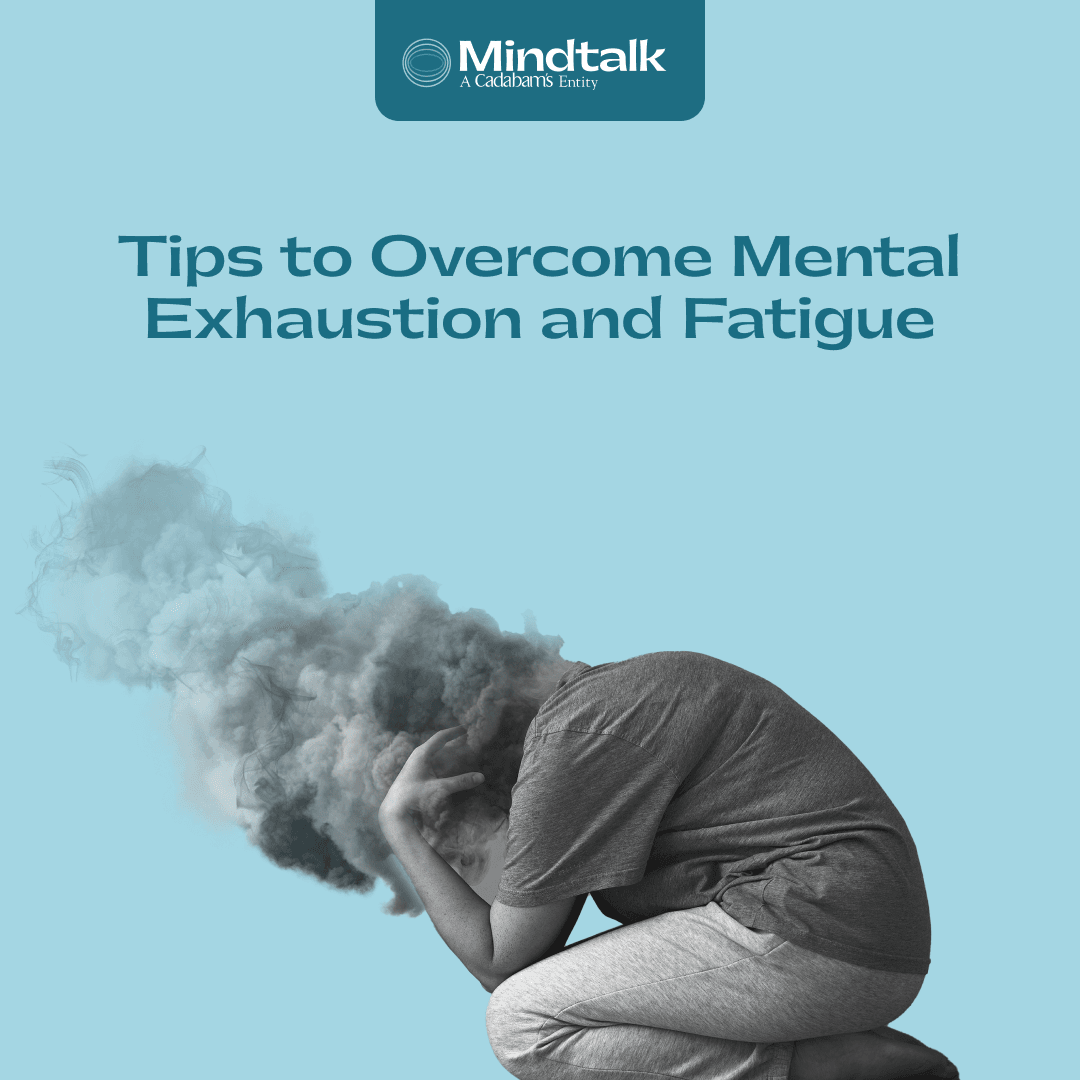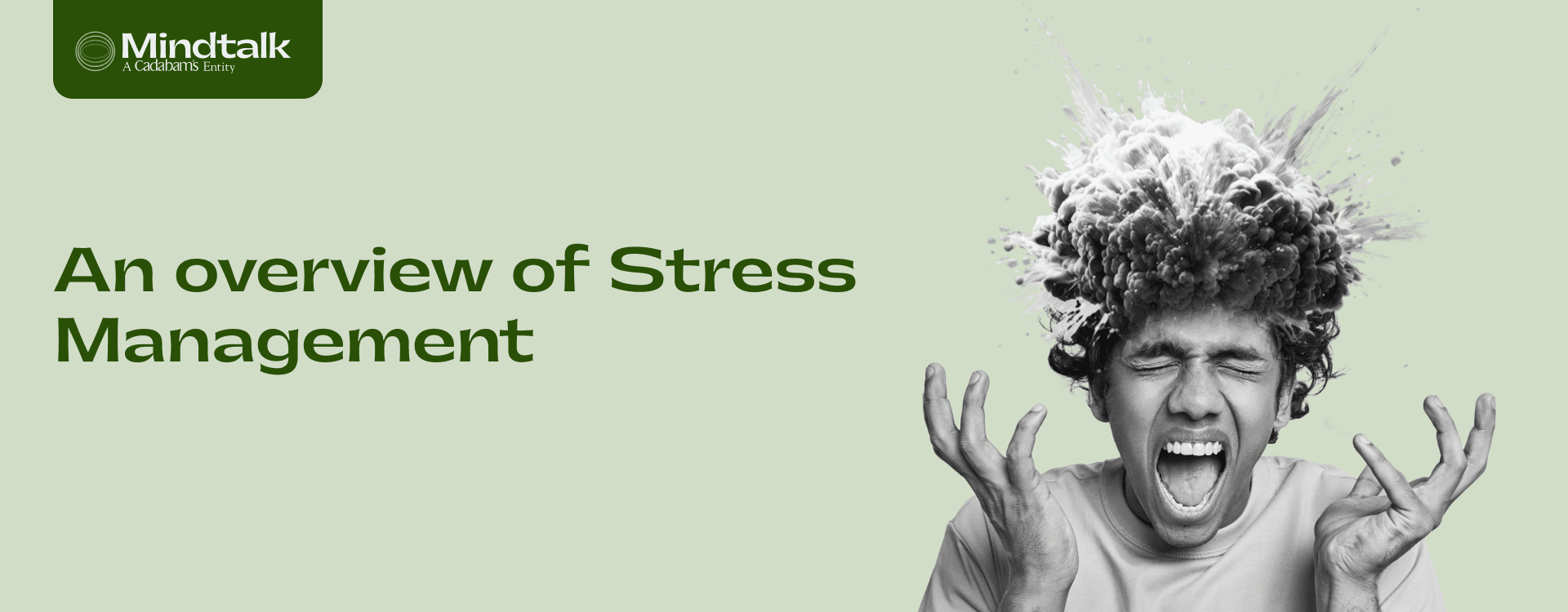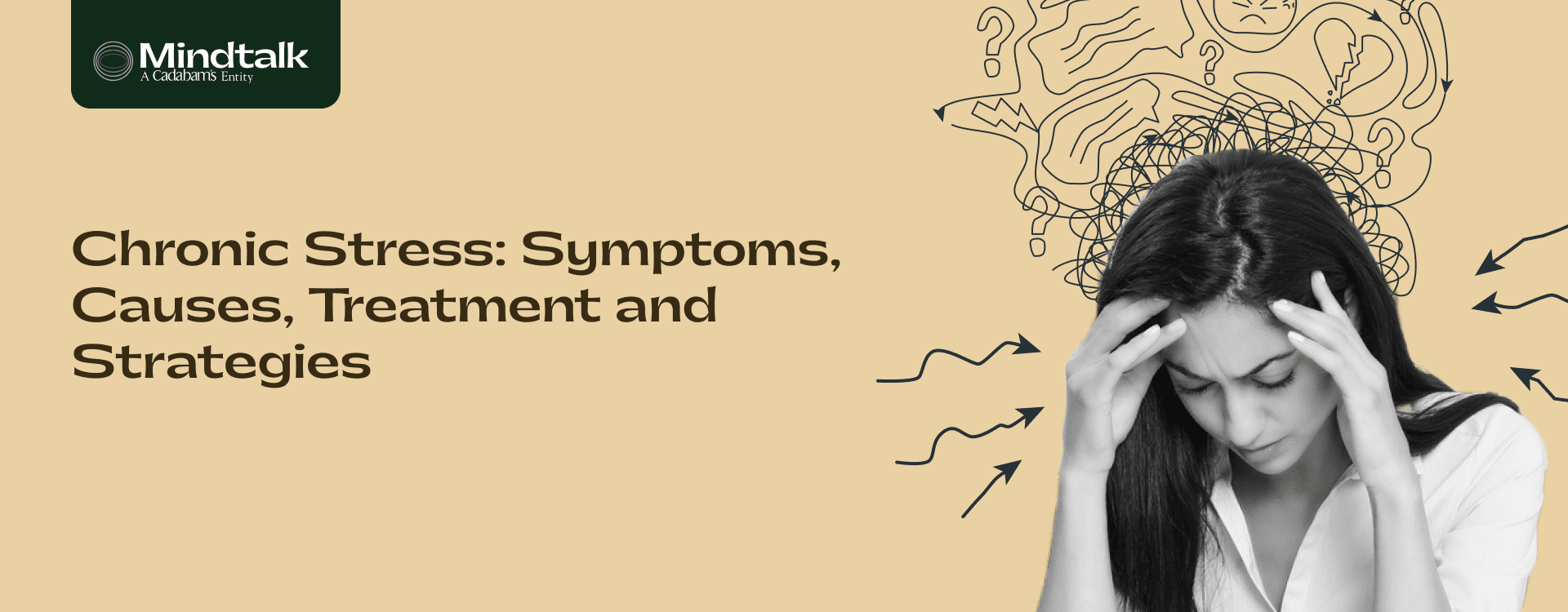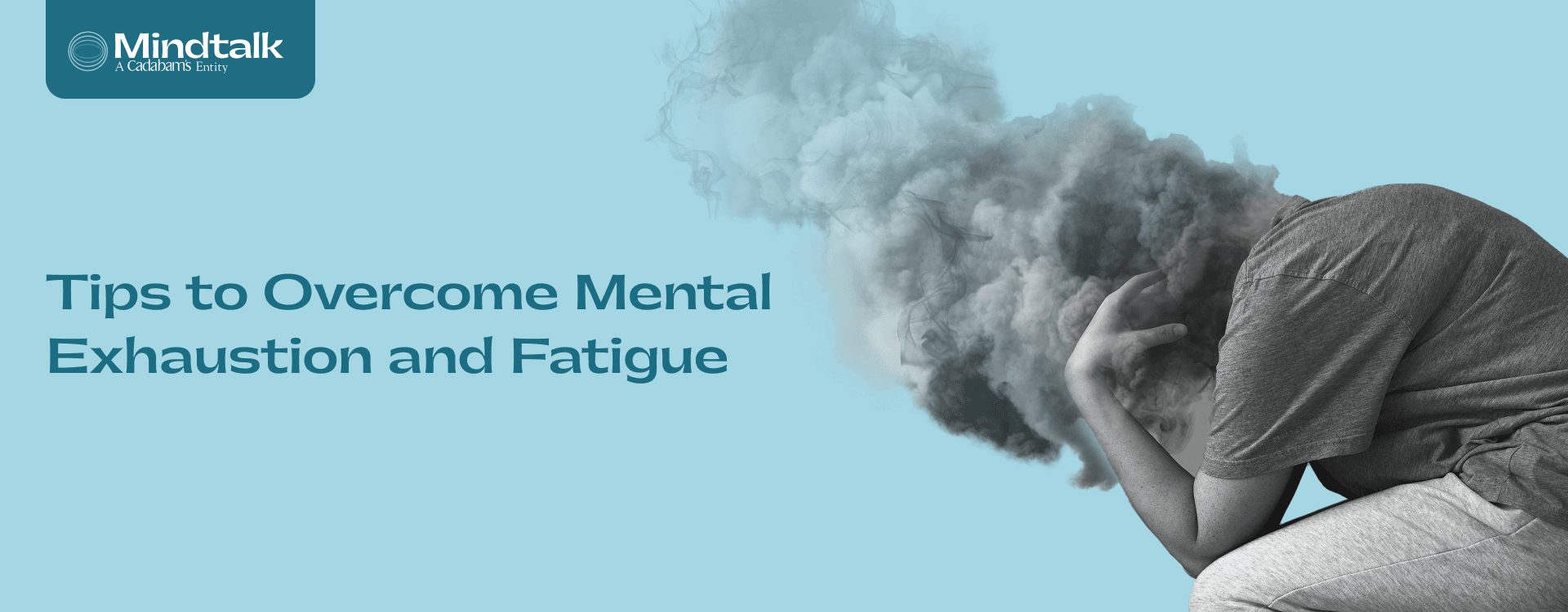How to Overcome Mental Exhaustion and Fatigue: Practical Tips
Overcoming mental health exhaustion and fatigue is going to require a multi-pronged approach that focuses on both immediate relief and long-term sustainable practices. Let’s look at what that is in detail.

What is Mental Exhaustion?
Mental exhaustion is a state of overwhelming cognitive fatigue caused by prolonged stress, overthinking, or emotional strain. It can lead to reduced focus, irritability, detachment, and burnout. Unlike physical tiredness, mental exhaustion affects your ability to think clearly and manage everyday tasks.
Understanding Of Mental Exhaustion And Fatigue
Mental exhaustion and fatigue are more than just feeling tired. They are a state of emotional and cognitive depletion caused by prolonged stress, overwork, or underlying mental health conditions. Symptoms can include emotional apathy, difficulty concentrating, lack of motivation, and physical fatigue. Recognizing these signs and understanding their underlying causes is crucial for taking proactive steps toward recovery and preventing burnout.
Causes Behind Feeling Mentally Drained
There are several factors that can contribute to feeling mentally drained. Let’s look at a few:
Persistent Mental Health Conditions
Anxiety, depression, and trauma can lead to ongoing emotional strain and mental fatigue. These are very serious mental health illnesses and should be looked into as soon as possible since untreated mental health issues can create a constant state of emotional strain, leading to mental exhaustion.
Extended Work Schedules
Demanding work environments and long hours can deplete mental resources and leave you feeling exhausted. Along with that, a lack of clear boundaries between work and personal life can exacerbate mental fatigue.
Lack Of Emotional Support
Feeling isolated, unsupported, or lacking a sense of belonging can exacerbate emotional exhaustion and make it harder to cope with stress. Difficulty expressing emotions or accessing support can further exacerbate the feeling of being drained.
Key Signs of Mental Exhaustion
Recognising the signs of mental exhaustion early can help prevent long-term burnout. Common symptoms include:
- Brain fog or difficulty concentrating
- Irritability or a short temper
- Constant fatigue despite adequate rest
- Loss of motivation or interest in daily tasks
- Decreased productivity or performance
- Feelings of helplessness or emotional detachment
- Forgetfulness or frequent disorganisation
- Mood swings or emotional numbness
If these symptoms persist, it may indicate the need for mental health support or lifestyle adjustments.
Mental And emotional signs
- Feeling overwhelmed, apathetic, or cynical, with a loss of joy and motivation.
- Difficulty concentrating, making decisions, or remembering things.
- Increased irritability, anxiety, or sadness, often accompanied by emotional numbness.
- Feeling constantly tired, even after adequate sleep, with a sense of depletion.
- Decreased interest in activities you used to enjoy, feeling disconnected from the world.
Behavioral signs
- Withdrawing from social activities and isolating yourself, preferring to be alone.
- Procrastinating and, neglecting responsibilities, struggling to meet deadlines.
- Difficulty coping with stress, resorting to impulsive decisions or risky behaviors.
- Changes in sleep patterns, insomnia, or difficulty waking up in the morning.
- Neglecting personal care, such as hygiene, meals, or appearance.
Physical signs
- Headaches, muscle aches, and fatigue, feeling physically drained and weak.
- Digestive problems, experiencing constipation, diarrhea, or changes in appetite.
- Unexplained weight gain or loss, noticing fluctuations in your weight.
- Increased sensitivity to pain and a lowered immune system, becoming sick more often.
- Changes in energy levels, experiencing fatigue throughout the day with poor physical stamina.
Relaxation Techniques For Mental Exhaustion
When mental fatigue sets in, incorporating specific relaxation techniques can promote mental well-being and combat exhaustion. Here are a few effective strategies:
- Deep breathing exercises: Focus on your breath, inhaling slowly for a count of four, holding for four, and exhaling for six. Repeat this several times to calm your mind and reduce anxiety.
- Progressive muscle relaxation: Tense and relax different muscle groups in your body, starting with your toes and working your way up. This releases physical tension and promotes relaxation.
- Mindfulness meditation: Focus your attention on the present moment without judgment, observing your thoughts and feelings without getting caught up in them. This helps cultivate inner peace and reduce mental chatter.
- Aromatherapy: Surround yourself with calming scents like lavender, chamomile, or bergamot. You can use essential oils in a diffuser, add them to a bath, or apply them topically.
- Yoga or gentle stretching: Gentle movements and postures can help release tension and improve flexibility, promoting both physical and mental relaxation.
Effective Strategies & Mental Fatigue Solutions
Managing mental fatigue requires a multi-pronged approach. Below are practical tips for mental tiredness and long-term recovery strategies.
Lifestyle Adjustments
Simple changes to daily routines can make a significant difference:
- Prioritise sleep hygiene and maintain a consistent sleep schedule
- Take regular breaks during work to reset mentally
- Reduce screen time, especially before bed
- Stay hydrated and eat nutrient-rich meals
- Incorporate physical activity, even low-intensity walks
Mindfulness & Stress Management
Mind-body practices help reduce cognitive overload:
- Practise deep breathing or progressive muscle relaxation
- Engage in meditation or guided imagery
- Keep a journal to process emotions
- Set realistic daily goals to avoid overwhelm
Seeking Professional Help
If fatigue persists:
- Consult a mental health professional for a proper assessment
- Explore therapy options like CBT for stress-related fatigue
- Consider medical screening to rule out physical causes
- Use professional support to build coping mechanisms and resilience
Stick To Healthy Nutrition
Nutrition plays a key role in managing mental fatigue. Make sure to stick to a balanced meal plan with fresh fruits, vegetables, and whole grains. Also, make sure to limit processed foods, sugary drinks, and even excessive caffeine intake. While following this, keep in mind that it is also important to stay hydrated and drink plenty of water.
Practice Regular Exercise
Exercise is great, and engaging in at least 30 minutes of moderate-intensity exercise is recommended. Try choosing activities that you may enjoy, like walking, swimming, or even just dancing to your favorite tunes. Exercise is known to help the body release endorphins that boost mood and energy levels.
Self-Care & Mindfulness Techniques
Adequate sleep is a must, and you should aim to get at least 7-8 hours of sleep per night. Make sure to take some time out to relax. Try engaging in stress reduction techniques like meditation or deep breathing, or just spend some time listening to music. In the end, what matters is that you ensure your body is relaxed and getting the rest it needs.
Lifestyle Adjustments
Restorative habits are key to recovering from mental exhaustion. Prioritise consistent sleep with proper hygiene, dark rooms, no screens, and regular sleep times. Engage in moderate physical activity like walking or yoga to release endorphins and reduce fatigue. Fuel your body with balanced meals, rich in protein, complex carbs, and hydration. These foundational shifts improve energy, focus, and emotional resilience over time.
Mindfulness and Stress Management
Mindfulness practices like deep breathing, guided meditation, and body scans help calm the mind and reduce stress hormones. Regular self-care through journaling, nature walks, or tech breaks creates emotional space to reset. These habits support stress management and are vital in preventing emotional exhaustion and burnout.
Tips for Mental Tiredness Prevention
To prevent mental tiredness, set clear work-life boundaries and prioritise regular self-care. Take short breaks during tasks, avoid multitasking, and limit screen time. Incorporate relaxation techniques like stretching or mindfulness into daily routines. These simple tips for mental tiredness help maintain long-term cognitive and emotional balance.
Brain Fog and Fatigue Recovery Insights
Brain fog and fatigue recovery involves restoring cognitive clarity through targeted lifestyle changes. Stay hydrated, eat balanced meals to stabilise blood sugar, and prioritise sleep. Include foods rich in omega-3s and antioxidants. Gentle exercise, reduced screen time, and stress reduction techniques like deep breathing or journaling can also aid recovery.
Mental Health Professional For Stress
A Path Forward From Mental Exhaustion With Mindtalk
Feeling mentally exhausted can be overwhelming, but you don't have to navigate this alone. Mindtalk offers a comprehensive and personalized approach to help you manage mental fatigue and reclaim your well-being. We will help you identify the root cause and then guide you through the most effective coping methods and strategies to manage stress and anxiety.




